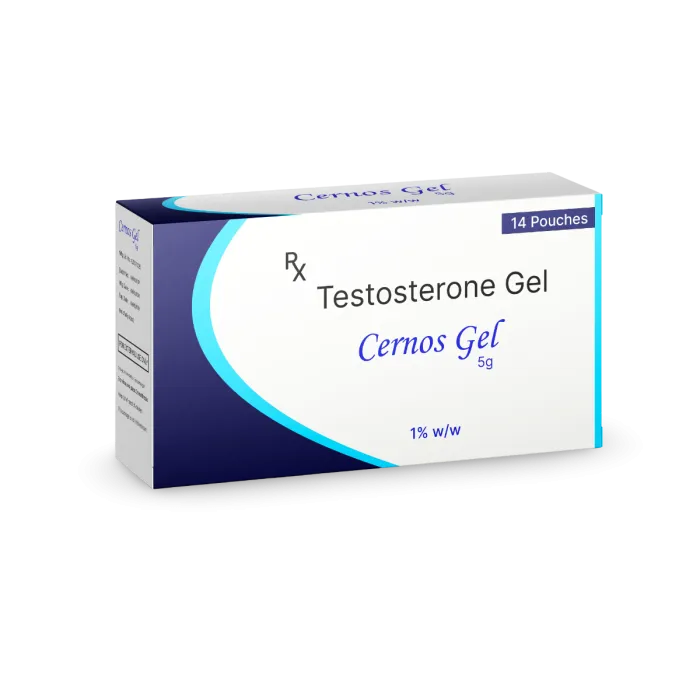Anxiety is a common mental disorder affecting multiple individuals in the US.
Although Anxiety involves several physical factors, psychological factors like hormones may also impact this disorder.
This is why several individuals might enquire, ‘Can low Testosterone cause Anxiety?’
This article will discuss the correlation between Testosterone levels and Anxiety.
It will help individuals understand how hormonal imbalances may impact their overall health and contribute to Anxiety.
Understanding Testosterone
Testosterone is the primary sex hormone in men or Assigned Males at Birth (AMAB).
It is responsible for developing masculine traits like facial hair, voice deepening, and enhanced growth during puberty.
This hormone also contributes to bodily functions, including bone density, muscle development, mood regulation, and overall health.
While Testosterone is the male hormone, women or Assigned Females at Birth (AFAB) also produce it in small amounts.
Save up to 90% on your medicine bills

Cernos Gel 1%w/w

Cernos 40 Mg Soft Gelatin Capsule

Sustanon 250 Injection

Carmel Organics Ashwagandha Extract Tablets
Can Low Testosterone Cause Anxiety
While Testosterone does not directly cause Anxiety, low Testosterone (low T) levels may create a hormonal imbalance.
This imbalance impacts one’s mood regulation, neurotransmitter balance, and stress response, leading to Anxiety disorders.
Studies indicate addressing hormonal imbalances may improve mood and helps reduce Anxiety symptoms.
However, Anxiety is much more complex, and multiple factors contribute to it.
If you feel that low Testosterone levels are affecting your mental well-being, consult a doctor.
They will conduct an evaluation to determine the cause and recommend suitable treatment.
To learn more about how low Testosterone levels impact your overall health, Read Everything You Need to Know About Low Testosterone Levels.
The Anxiety-Testosterone Connection
As mentioned earlier, low Testosterone levels may create a hormonal imbalance in one’s body.
This action may produce several changes leading to Anxiety symptoms like irritability, mood shifts, and sometimes signs of Depression.
Let’s discuss these factors in detail below.
Mood Regulation
An individual’s Testosterone levels affect their overall mood and emotional well-being.
Low testosterone levels may lead to problems like irritability, mood swings, and even
Depression symptoms.
All these factors may significantly contribute to Anxiety.
Neurotransmitters
Studies indicate that Testosterone impacts certain neurotransmitters in the brain, including Dopamine and Serotonin.
An imbalance of these neurotransmitters is often associated with Anxiety disorder symptoms.
Stress Response
 Source: Syda_Productions
Source: Syda_ProductionsAn individual’s Testosterone level may impact how their body responds to stress.
Low T might impair your ability to manage stress, increasing the probability of Anxiety levels.
Poor Sleep Schedule
Hormonal imbalances like low T can disrupt sleep patterns in an individual.
Getting poor quality sleep for long periods or Insomnia are significant contributing factors to Anxiety.
Remedies to Ease Anxiety Symptoms
 Source: Syda_Productions
Source: Syda_ProductionsImproving Testosterone levels can significantly improve your overall health, including Anxiety disorder.
Studies indicate that Testosterone is crucial in working neurotransmitters, regulating mood, and managing stress.
If you think your low T levels are causing Anxiety symptoms, consult a medical expert.
They will perform a specific diagnosis and recommend a suitable treatment based on your condition.
Hormone Replacement Therapy is a Low Testosterone treatment that may help you effectively regulate your hormonal levels, including Testosterone.
However, suppose your Anxiety is due to psychological factors like excessive stress or an underlying mental condition like Performance Anxiety.
In that case, they will take a different approach.
If you wish to explore more about Performace Anxiety and measures to treat it, Read Sexual Performance Anxiety: Symptoms, Causes, and Treatments
Conclusion
The connection between Anxiety and low Testosterone levels is not completely understood.
However, some studies suggest that hormonal imbalances can cause mental disturbances, including Anxiety.
If you feel your low Testosterone levels contribute to Anxiety symptoms, consulting a medical professional is essential.
They will assess your hormonal levels and provide a suitable recommendation.
However, other physiological or psychological factors may also contribute to Anxiety.
This makes it crucial to adopt a holistic approach to treat the condition for overall well-being.

Frequently Asked Questions
Can low Testosterone cause Anxiety in men?
Yes, low Testosterone levels may influence Anxiety symptoms indirectly in men.
Low levels of Testosterone cause mood disturbances, affecting one’s overall cognitive behavior.
Can low Testosterone cause Anxiety in women?
Although women have Testosterone in small amounts, hormonal imbalance can still impact one’s mood.
Frequent mood changes can cause stress and may lead to symptoms of Anxiety.
Does low Testosterone cause Anxiety?
Although Anxiety is a symptom of low Testosterone levels, not everyone will experience it.
Signs and symptoms of this condition vary, and individuals may have distinguished experiences.
How can I know if my Anxiety is related to low Testosterone?
Consult a healthcare expert who will diagnose your Testosterone levels.
Based on the diagnosis, they will evaluate your symptoms and decide if the hormonal imbalances cause Anxiety.
Are there natural ways to boost Testosterone and alleviate Anxiety?
Yes, there are several natural techniques to enhance hormonal balance and overall Testosterone levels.
These include lifestyle modifications like a healthy diet, regular exercise, adequate sleep, and stress management.
What should I do if I suspect low Testosterone is causing my Anxiety?
If you feel low Testosterone levels contribute to your Anxiety symptoms, consult a medical professional.
They will suggest suitable diagnoses and, if required, treatment options.
Testosterone pills, gels, and injections are typical treatments for boosting Testosterone levels.
Cheap Medicine Shop only refers to credible, authoritative sources for our content. If you’re curious about how we ensure the integrity of our content, we encourage you to read our Content Information Policy.














